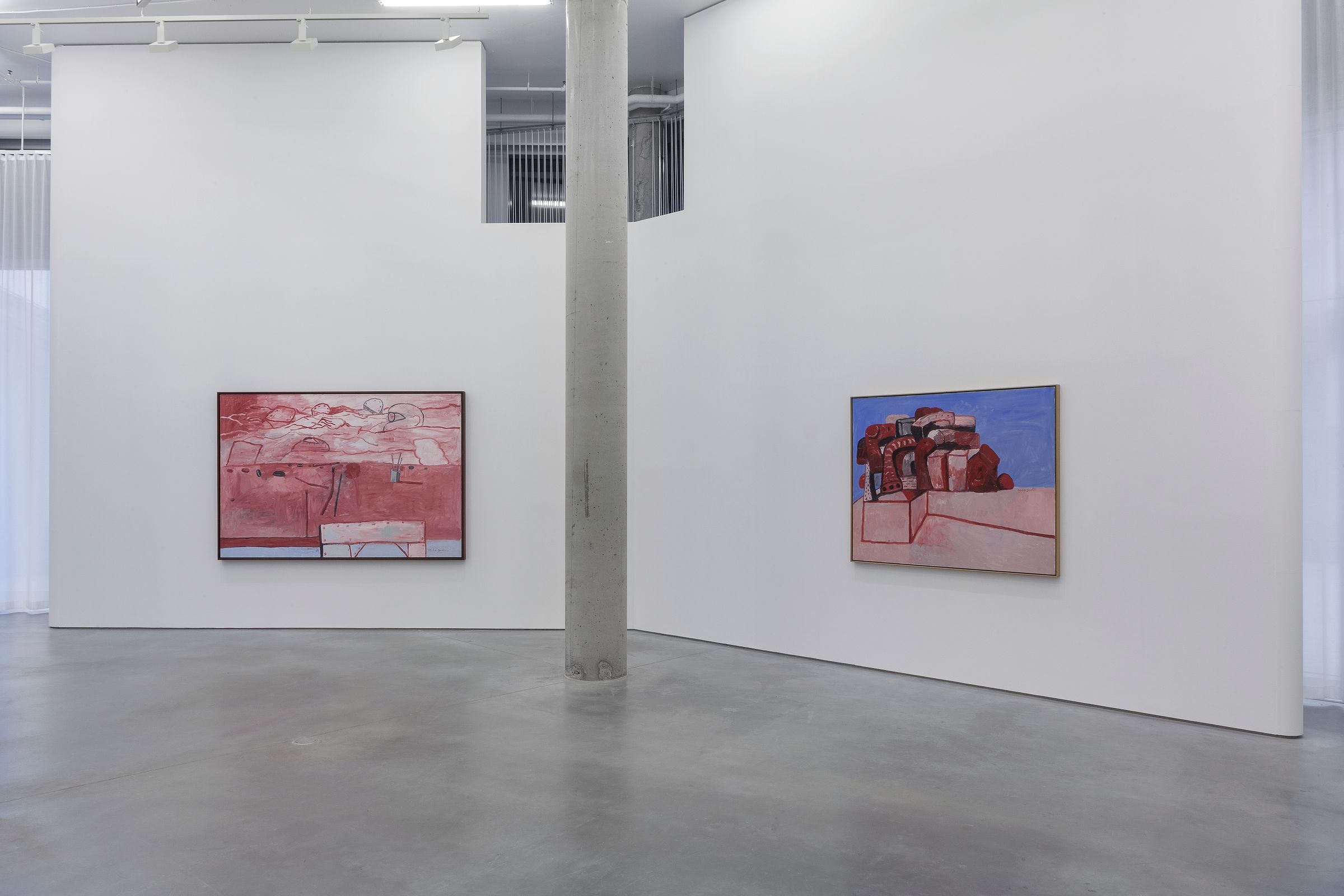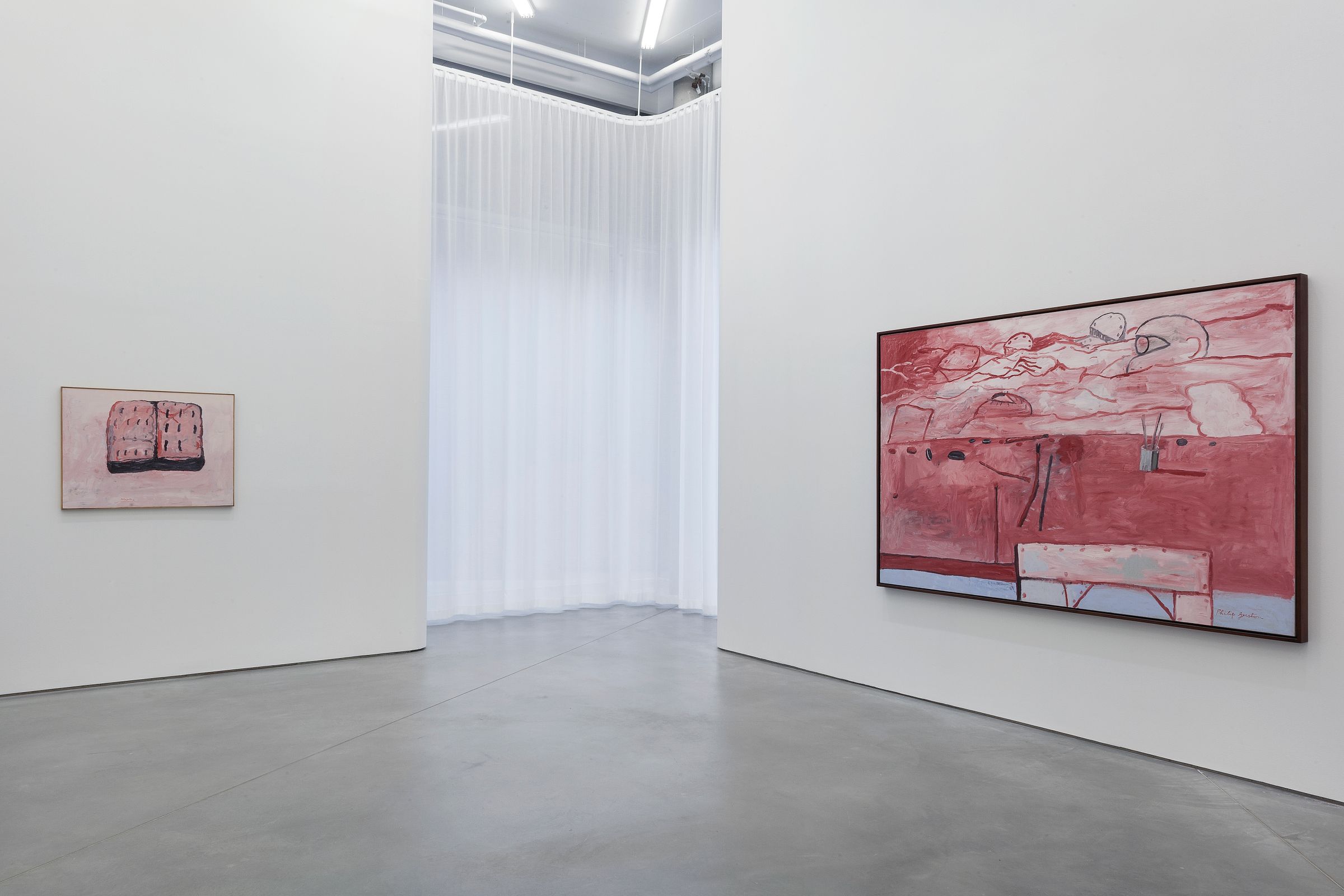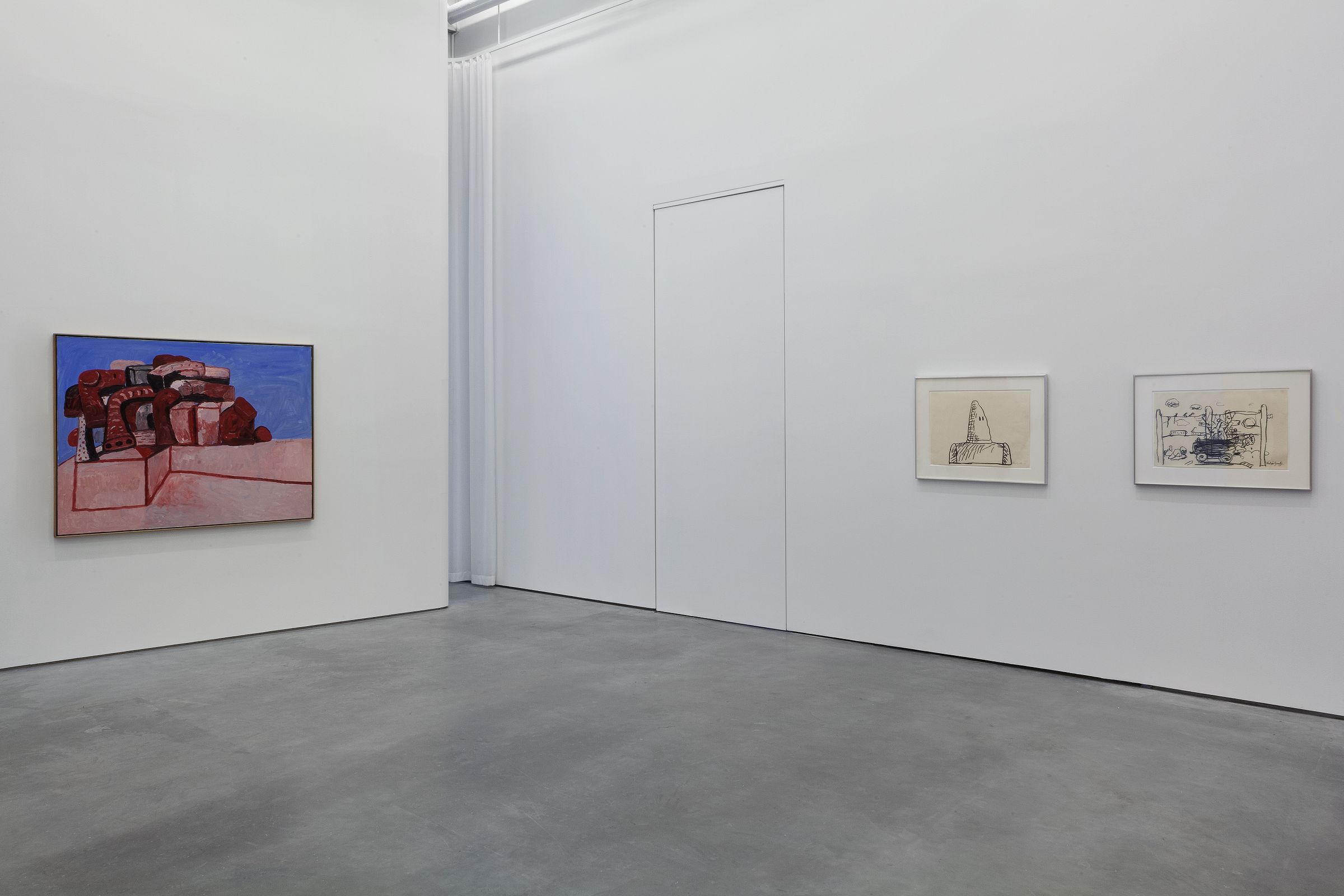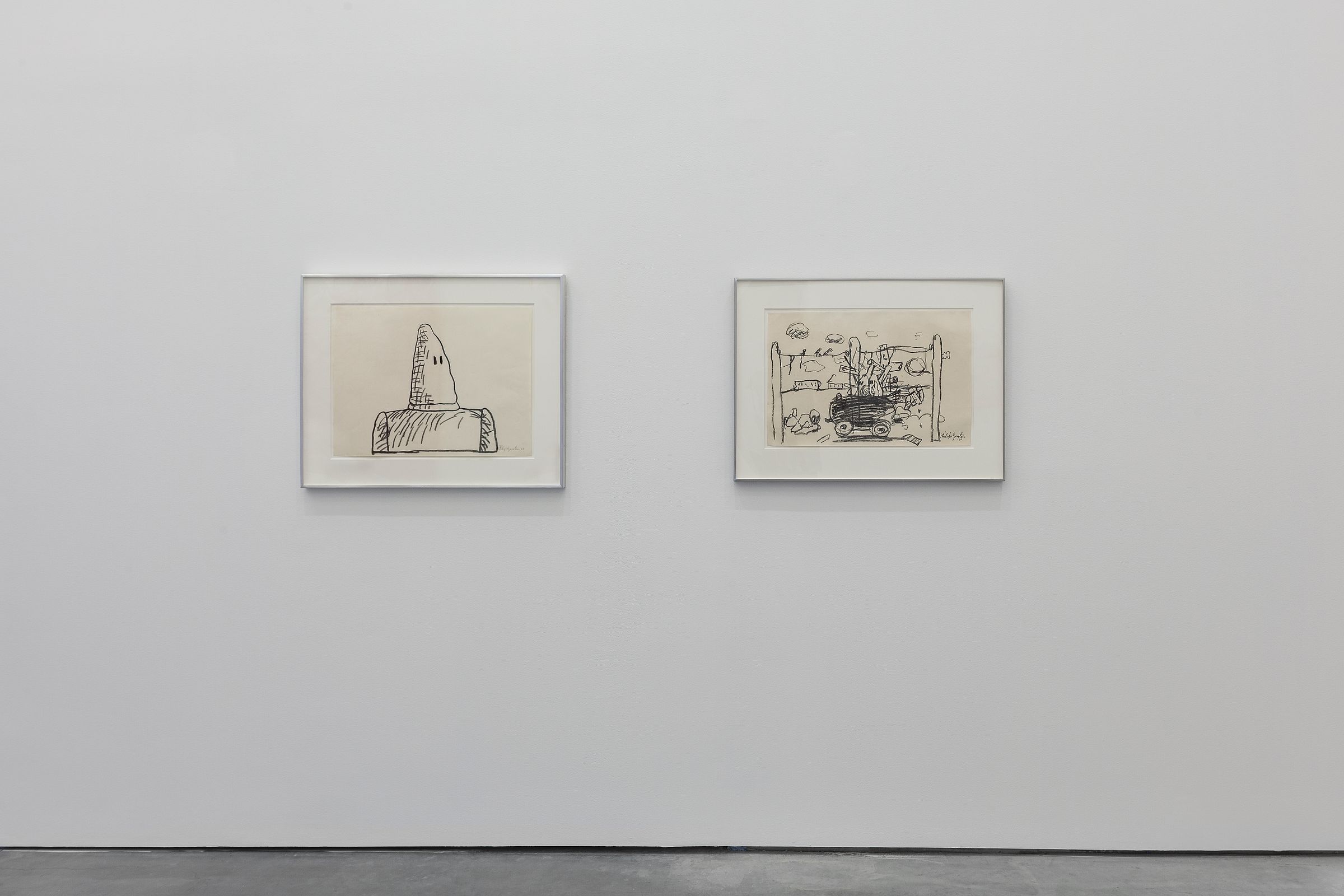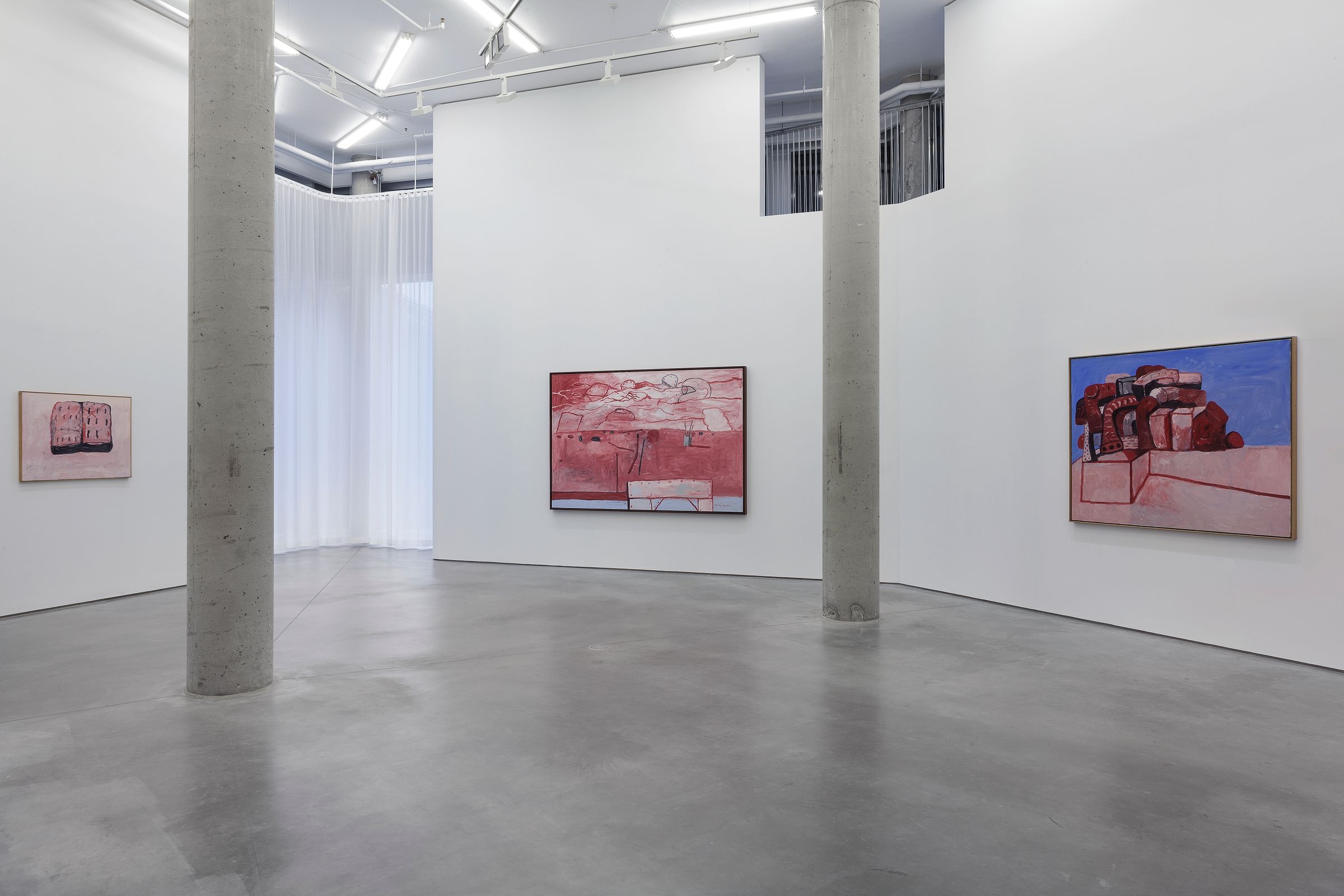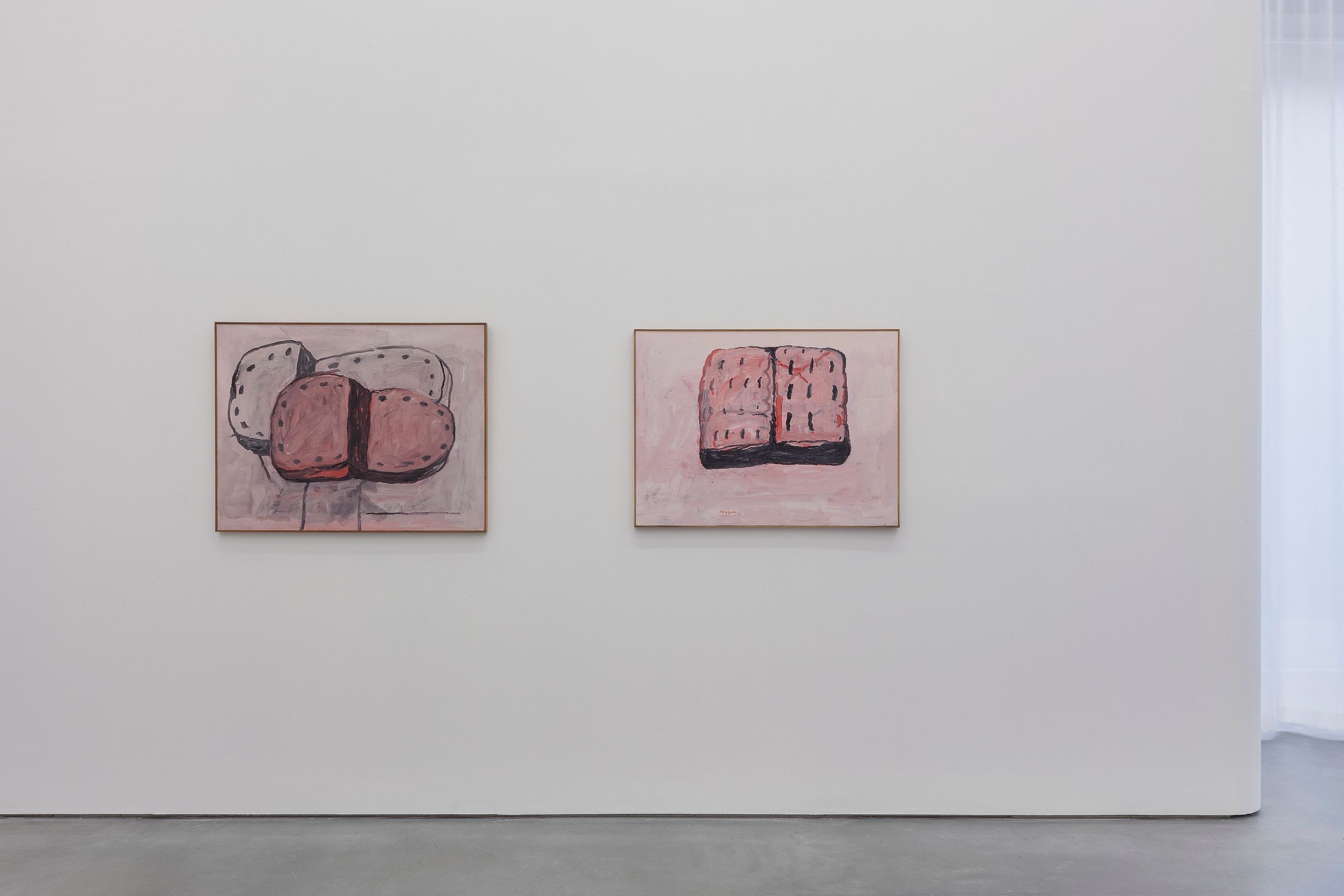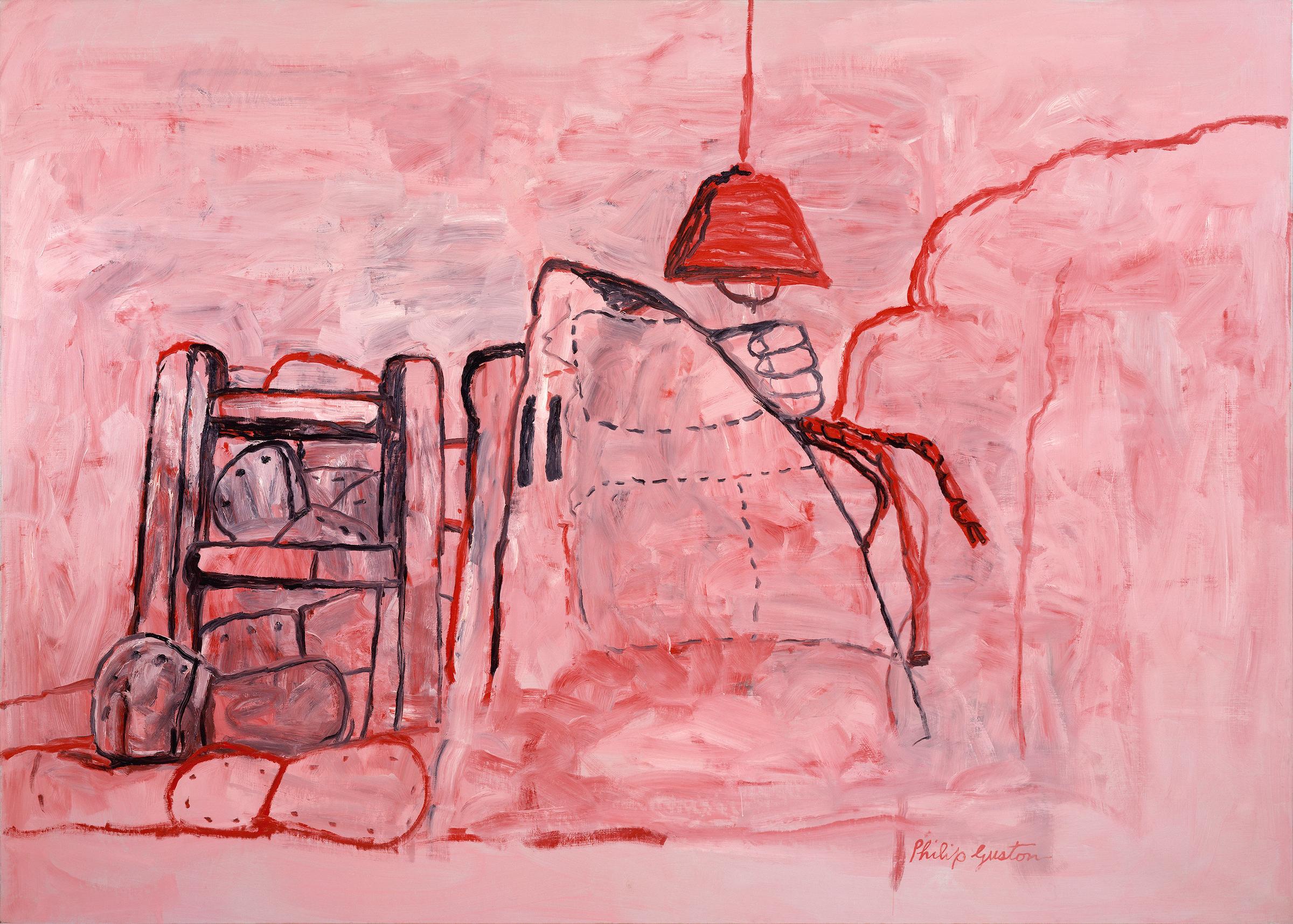
Philip Guston
Late Paintings
September 20, 2014 – November 8, 2014
Peder Lund is proud to announce an exhibition of late paintings by the American painter Philip Guston (1913-80). Bringing works by Guston to Norway for the first time, Peder Lund will exhibit six paintings and two drawings made in the last decade of the painter’s life, two of which are on loan from Louisiana Museum of Modern Art. Four of the paintings have been part of the travelling exhibition Philip Guston: Late Works, celebrating the centennial of the artist’s birth, which opened in November, 2013, at Schirn Kunsthalle, Frankfurt, and travelled to Deichtorhallen, Hamburg, and Louisiana Museum of Modern Art, Humlebæk, through August, 2014. The exhibition at Peder Lund opens September 20 and will be on display until November 8, 2014.
Philip Guston was born in Montreal in 1913 as the youngest son of Ukrainian-Jewish immigrants, who had fled the pogroms in Odessa, Ukraine. The family relocated to Los Angeles in 1919, and Guston began to draw at the age of 14. He earned a scholarship from the Otis Art Institute in 1930, but left the art school after three months and set out as an autodidactic painter, before travelling to Mexico in 1934, where he got involved with the Mexican Mural Movement. Returning to America, Guston left Los Angeles for New York in 1936 and joined the Work Progress Administration’s Federal Art Project (WPA/ FAP) (1935-43), the visual arts initiative of Franklin D. Roosevelt’s New Deal programme, for which Guston made a number of murals on public buildings. A fascination with Italian Medieval and Renaissance artists came to influence Guston’s murals, and the painter further explored this interest when he travelled across Italy, Spain and France between 1948 and 1949. This fascination endured throughout Guston’s oeuvre and came to play a significant part in his late, figurative works.
Works
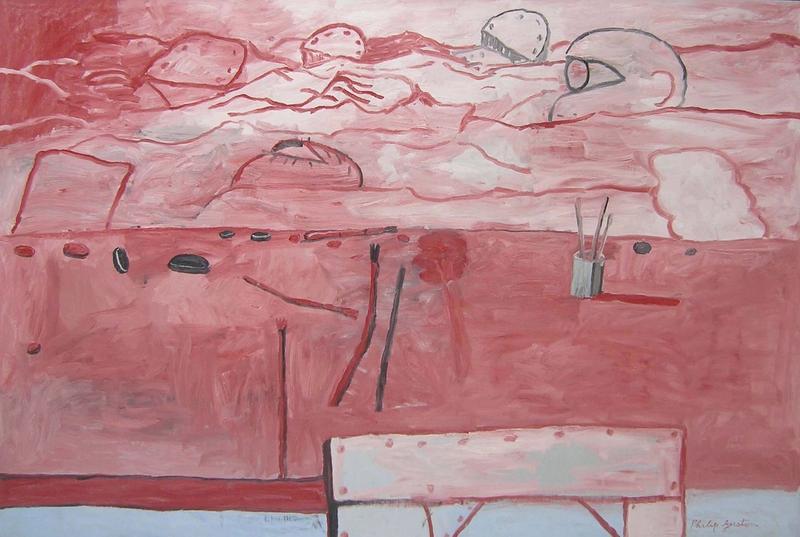
Division, 1975
Philip Guston
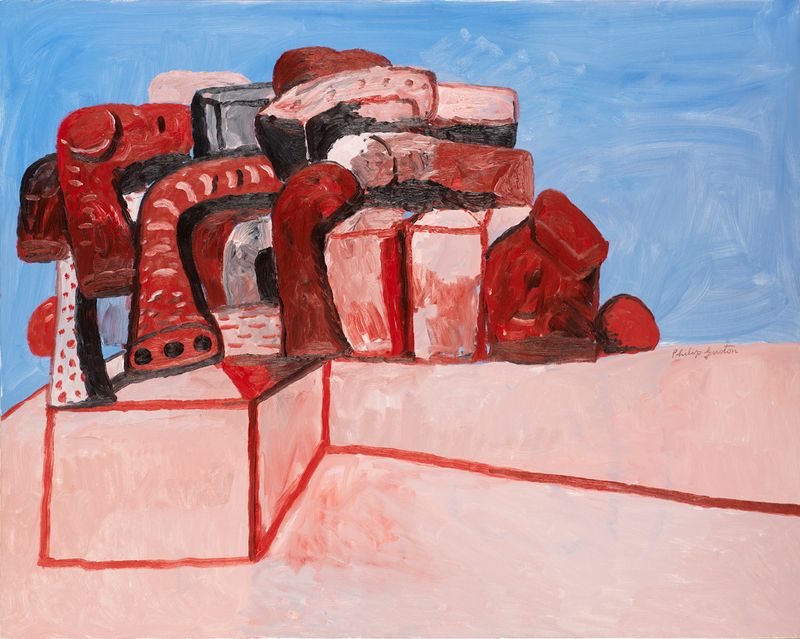
Ledge, 1979
Philip Guston
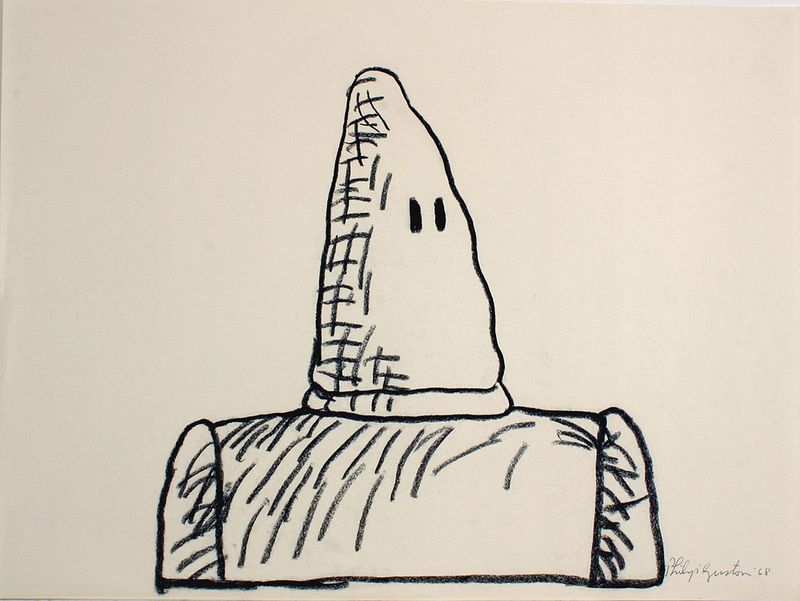
Untitled, 1968
Philip Guston
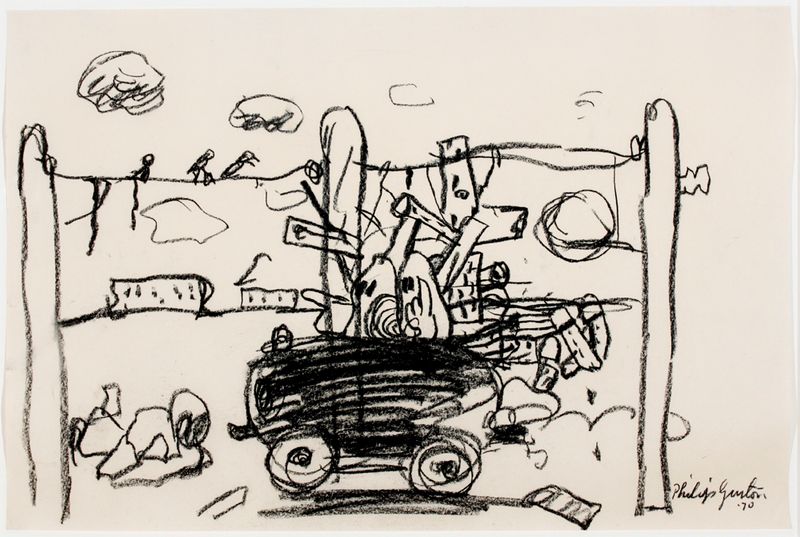
Untitled, 1970
Philip Guston
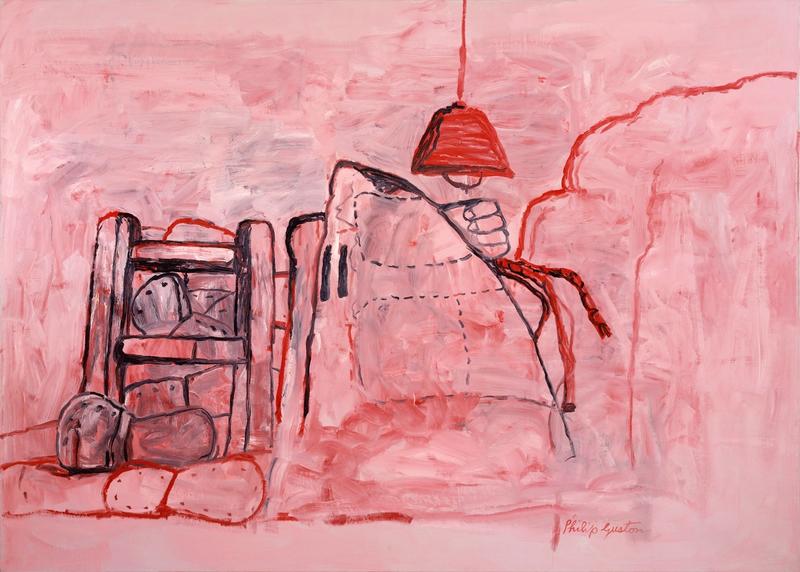
Cave, 1974
Philip Guston
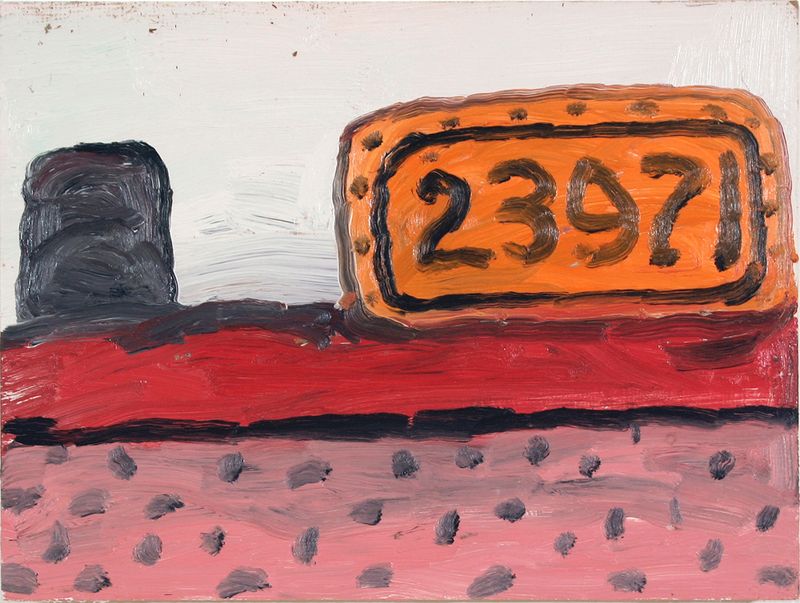
Untitled (License Plate), 1970
Philip Guston
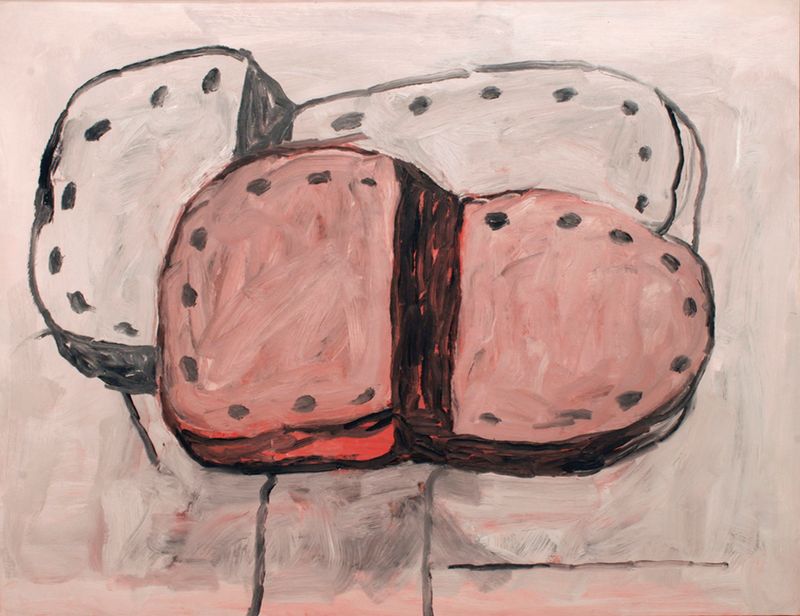
Shoes, 1971
Philip Guston
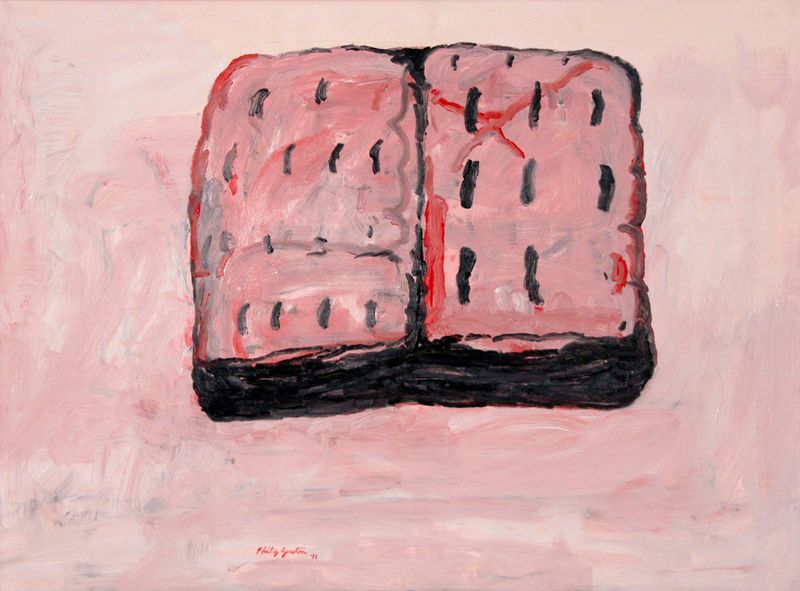
Untitled (Old Book), 1971
Philip Guston
